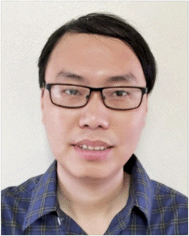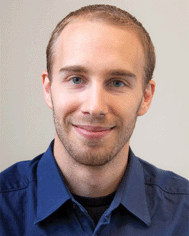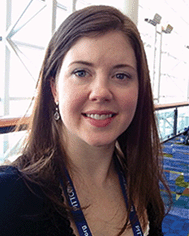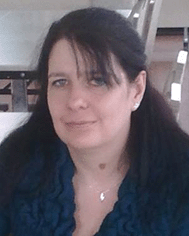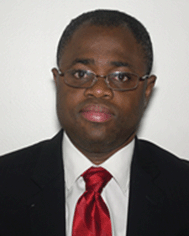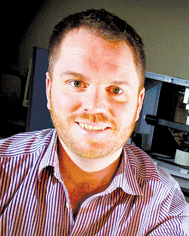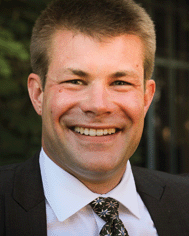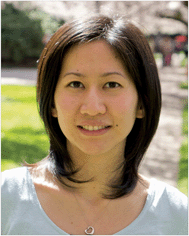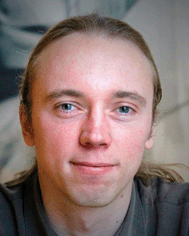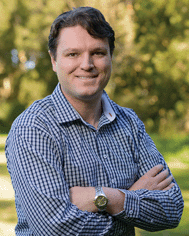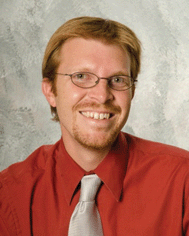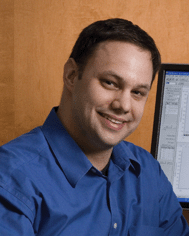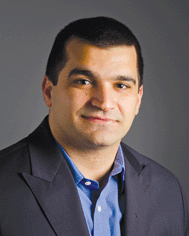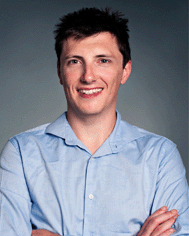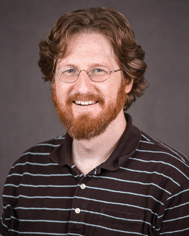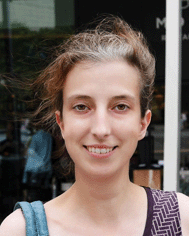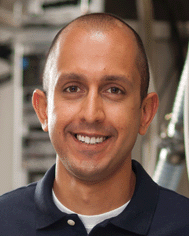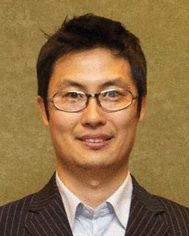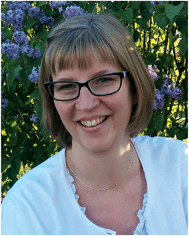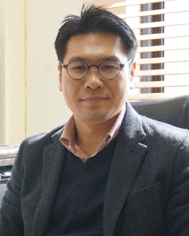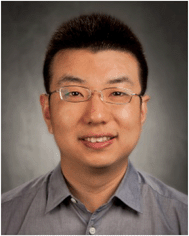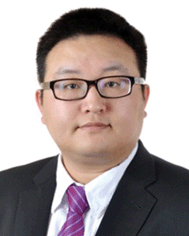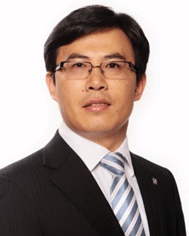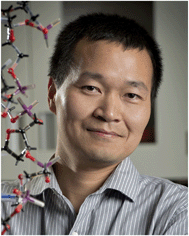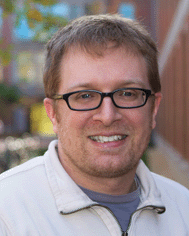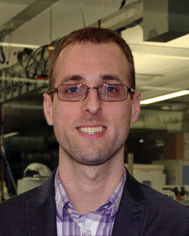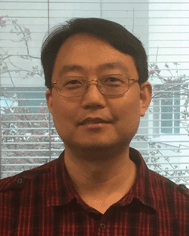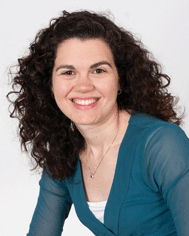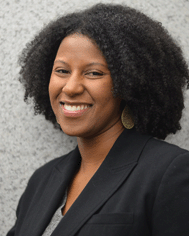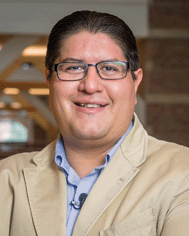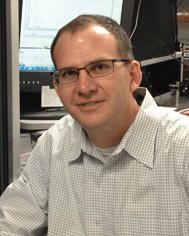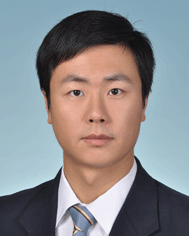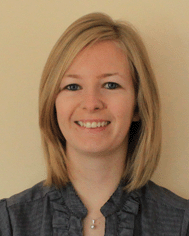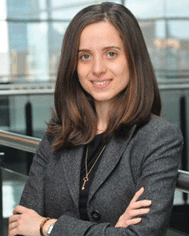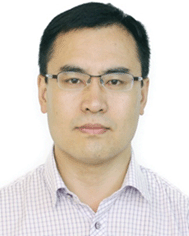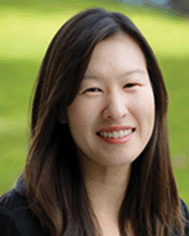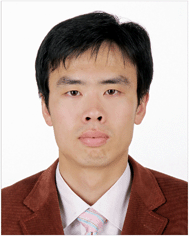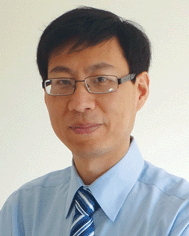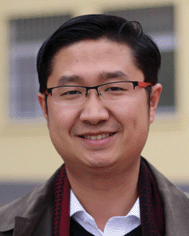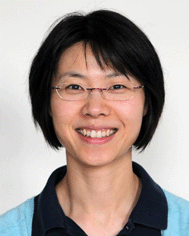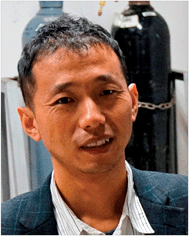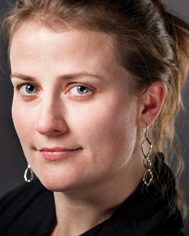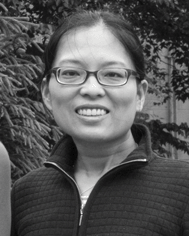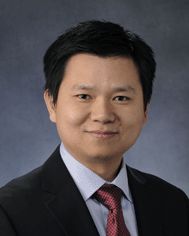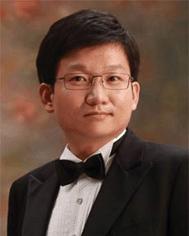DOI:
10.1039/C6AN90047J
(Profile)
Analyst, 2016,
141, 3464-3472
Contributors to the emerging investigators issue
Huiwang Ai is an Assistant Professor in the Department of Chemistry at the University of California, Riverside (UCR). Huiwang received his BS in Chemistry from Tsinghua University in 2003 and his PhD in Chemical Biology from the University of Alberta in 2008, after which he was a postdoctoral fellow at The Scripps Research Institute. He joined UCR in 2011. His research program spans the development of fluorescent probes and peptide-based enzyme inhibitors to the understanding of oxidative/nitrosative stress in pathophysiology. Huiwang has received several awards, including the NSF CAREER Award (2014) and the Hellman Fellows Award (2013).
W. Russ Algar is an Assistant Professor in the Department of Chemistry at the University of British Columbia, a Canada Research Chair (Tier 2) in Bio/Chemical Sensing, and a Michael Smith Foundation for Health Research Scholar. Algar received his PhD from the University of Toronto in 2010 and was a postdoctoral fellow at the U.S. Naval Research Laboratory before moving to UBC in 2012. His research focuses on the applications of luminescent materials in bioanalysis, including point-of-care diagnostic technologies, multifunctional probes, molecular photonic logic, and fundamental spectroscopy, biophysical chemistry and bioconjugate methods to support these applications.
Robbyn K. Anand joined the chemistry faculty of Iowa State University in August 2015 as an Assistant Professor. She earned her PhD in 2010 from the University of Texas at Austin under the guidance of Prof. Richard M. Crooks with the support of an NSF Graduate Research Fellowship. She developed microfluidic devices employing bipolar electrodes for electrokinetic focusing of charged species and membrane-free seawater desalination. Then, as an NIH postdoctoral fellow, she worked with Prof. Daniel T. Chiu at the University of Washington on the capture and analysis of circulating tumor cells. She pioneered a technique for dielectrophoretic manipulation of biological cells using extended electric field gradients.
Lorna Ashton joined the Chemistry Department at Lancaster University in October 2014. After receiving her degree from the Open University in 2003 she studied for her PhD at the University of Manchester. Lorna stayed at Manchester to continue her postdoctoral studies specialising in Raman spectroscopy, which utilises the interaction of light with molecules to determine sample chemistry. She has worked closely with several biopharmaceutical companies developing Raman as a high throughput technique for bioprocessing. Lorna's present research uses Raman spectroscopy to monitor structural changes in biological molecules and to chemically image live cells.
Abraham Badu-Tawiah obtained his BSc and MSc (2005) degrees from Kwame Nkrumah University of Science and Technology, Ghana, and his MS (2007) degree in Chemistry from Indiana University of Pennsylvania. He received his PhD (2012) in Chemistry from Purdue University under the supervision of Graham Cooks. From 2012 to 2014, he was a postdoctoral fellow at Harvard University under the direction of George Whitesides. He joined The Ohio State University, Department of Chemistry and Biochemistry in July 2014 as an Assistant Professor. His current research is focused on the development of new mass spectrometry techniques for disease detection, and the studies of novel ion chemistry in charged micro-droplets.
Matt Baker obtained his PhD from the Department of Chemical Engineering and Analytical Science, University of Manchester based in the Manchester Interdisciplinary Biocentre. Following this he was awarded an EPSRC Fellowship conducting research at the Robert Koch Institute and Harvard Medical School. He was then a Project Manager, Senior Scientist and Research Fellow for Dstl and Senior Lecturer at UCLan. He is currently a Senior Lecturer in the Department of Pure and Applied Chemistry, University of Strathclyde based in the Technology Innovation Centre. His research aims are to understand the composition and behavior of molecules within complex matrices related to real-world detection challenges.
Christian Bleiholder is an Assistant Professor of Chemistry at Florida State University with a MSc and DSc in Chemistry (University of Heidelberg, 2004 and German Cancer Research Center, 2007). Using theoretical methods, he investigated non-covalent self-assembly reactions with Rolf Gleiter and peptide fragmentation used in mass spectrometry-based proteomics methods with Sándor Suhai. During his postdoctoral research with Michael T. Bowers (University of California, Santa Barbara) he investigated amyloid fibrils, protein deposits implicated in
e.g. Alzheimer's Disease, with ion mobility/mass spectrometry. His awards include an Alexander von Humboldt fellowship (2008–2010) and a Postdoctoral Research Award from the American Chemical Society (2011).
Jennifer Chen earned her BSc degree in chemistry at Simon Fraser University, Canada, in 2004. She received postgraduate awards from NSERC and completed her PhD in materials chemistry at the University of Toronto in 2009. After her NSERC postdoctoral fellowship at the University of Washington, USA, she joined the faculty at York University, Canada, as an Assistant Professor in Chemistry in August 2012. Her research centers on exploring optically active nanostructures for sensing and optoelectronic applications.
Andreas B. Dahlin received his PhD in 2008 after working with plasmonic nanostructures for sensing applications related to artificial cell membranes. Later during his postdoc at the Swiss Federal Institute of Technology (Zurich, Switzerland) he worked with combined electrochemical and plasmonic sensors. In recent years his main focus has turned towards polymer functionalized nanostructures and the use of plasmonic nanopores as selective filters or gates. He was awarded the degree of Associate Professor at Chalmers University of Technology (Gothenburg, Sweden) in 2015 and has recently become a faculty member at the Department of Chemistry and Chemical Engineering. More information is available at his website: http://www.adahlin.com/.
W. Alexander Donald joined the School of Chemistry at UNSW Australia in 2013 after two years as the Centenary Research Fellow at U Melbourne (2011–2012). Alex is a graduate of UC Berkeley (PhD 2010). He received an Australian Research Council Discovery Early Career Researcher Award, an IUPAC Prize for Young Chemists, the inaugural Michael Guilhaus Research Award (Australian and New Zealand Society for Mass Spectrometry), and the 2016 Royal Australian Chemical Institute Physical Chemistry Division Lectureship. The Donald Group develops and applies instrumentation, methods, and theory in mass spectrometry to fundamental problems in chemistry and biochemistry.
Jeremy Driskell earned a BS in chemistry from Truman State University (2001) and completed a PhD at Iowa State University under the advisement of Marc D. Porter (2006). From 2006 to 2011 he served as a postdoctoral research associate and research scientist at the University of Georgia developing novel SERS substrates for sensing infectious diseases. In 2011, Jeremy joined Illinois State University as an Assistant Professor of chemistry, and in 2013 he received a Defense Threat Reduction Agency Young Investigator Award. His current research interests include in the development of novel SERS platforms for bioanalytical applications and antibody–antigen binding kinetics.
James L. Edwards received BA and MS degrees in chemistry from Saint Louis University. He earned a PhD at the University of Michigan under the guidance of Robert T. Kennedy and later performed postdoctoral research at the Juvenile Diabetes Research Foundation Center for the Study of Complications in Diabetes under the direction of Eva Feldman. He was previously on staff at the University of Maryland and has been an Assistant Professor in the chemistry department at Saint Louis University since 2012. His research group develops metabolomic methods focused on advancing sample processing, capillary separations and mass spectrometry for diabetes research.
Patrick El-Khoury received a BSc in chemistry from the American University of Beirut (2003–2006, advisor: B. R. Kaafarani), a PhD in photochemical sciences from Bowling Green State University (2006–2010, advisor: A. N. Tarnovsky), and postdoctoral training at the University of California, Irvine (2010–2012, advisor: V. A. Apkarian). Soon after, he joined Pacific Northwest National Laboratory (PNNL) as a Linus Pauling fellow (2013–2016). Patrick is currently a staff scientist at PNNL, working in the area of ultrasensitive hyperspectral optical nanoscopy of molecules, plasmons, and their interactions.
Shane R. Ellis is an Assistant Professor within the Maastricht Multimodal Molecular Imaging Institute where he leads the instrumentation and application development for imaging mass spectrometry. His PhD research focused on development and application of novel ambient ionization techniques for imaging and structural elucidation of complex lipids on surfaces. In 2012 he began postdoctoral research at FOM-AMOLF continuing development of pixelated detectors for mass spectrometry applications. The general themes of his research are focused on breaking limits in sensitivity, speed, spatial resolution and structure elucidation capabilities in imaging mass spectrometry and the application of these technologies to real-world clinical problems.
Kenyon Evans-Nguyen is an Associate Professor at The University of Tampa. After earning a BA in biochemistry from Maryville College, and a PhD in analytical chemistry from the University of North Carolina, he was a postdoctoral fellow at the Johns Hopkins School of Medicine under the guidance of Robert Cotter. Kenyon's research focuses on development and application of mass spectrometry technologies for conventional and nuclear forensics. His wife Theresa Evans-Nguyen is an Assistant Professor at The University of South Florida, conducting research with portable and harsh environment mass spectrometers.
Alison Hobro obtained a BSc in Genetics from the University of Edinburgh and an MSc in Instrumentation and Analytical Science from UMIST. Her PhD studies, at the University of Manchester, focussed on Raman, Raman Optical Activity and Surface Enhanced Raman Scattering spectroscopies for the analysis of RNA. A subsequent postdoctoral position at Vienna University of Technology, Austria, focused on both stand-off Raman detection of explosives and IR imaging of biological samples. She is currently an Assistant Professor at the Immunology Frontier Research Center at Osaka University, Japan, applying Raman spectroscopy to targets in immunology and cell biology.
Grant Johnson obtained his BS in chemistry from University of Delaware in 2002 and PhD in chemistry from Pennsylvania State University in 2009. He received a National Science Foundation fellowship in 2006 to study computational chemistry at the Humboldt University in Berlin and a Department of Energy fellowship to attend the meeting of chemistry Nobel Laureates in Lindau. He was awarded the inaugural Linus Pauling Postdoctoral Fellowship at Pacific Northwest National Laboratory in 2010. He is currently a scientist in Chemical Physics and Analysis leading development of mass spectrometry and soft landing techniques for controlled preparation of materials.
Dong-Hyun Kim is an Assistant Professor of Analytical Bioscience in the School of Pharmacy at the University of Nottingham. Dr Kim obtained his PhD in Chemistry from the University of Manchester in 2010, which involved applications of analytical instruments such as vibrational spectroscopies and mass spectrometry for the investigation of cervical cancer. He then conducted postdoctoral research on clinical metabolomics of trypanosomes at the University of Glasgow. After the postdoctoral position, he was appointed to a lectureship at Nottingham in 2013 and has focused on the development of MS-based metabolomics methods in order to investigate complex biological and/or clinical problems.
Ingela Lanekoff received her MSc degree in chemical engineering from Malardalen University, Eskilstuna, Sweden in 2001 and her PhD degree in analytical chemistry from the University of Gothenburg, Sweden in 2011. She was a postdoctoral fellow at Pacific Northwest National Laboratory, WA, USA, (PNNL, 2011–2014) and currently is an Assistant Professor in analytical chemistry at Uppsala University in Sweden. Her research, which is funded by the Swedish Research Council and the Swedish Foundation for Strategic Research, focuses on the development of ambient surface sampling coupled to mass spectrometry and mass spectrometry imaging with applications in the field of biomedicine.
Jung Heon Lee received a BS from Yonsei University (2000), an MS from Seoul National University (2003), and a PhD from University of Illinois at Urbana-Champaign (2008). This was followed by a postdoctoral position at Northwestern University from 2009–2011. He is currently a Professor at the SKKU Advanced Institute of Nanotechnology (SAINT), Sungkyunkwan University (SKKU). His work is at the intersection of Materials Science, Chemistry, and Bioengineering, synergistically integrating biological and nanoscale systems to develop advanced tools for biomedical, environmental, and energy related applications.
Feng Li is an Assistant Professor with cross-appointments in the Department of Chemistry and Centre for Biotechnology at Brock University (St Catharines, Canada). He received his BSc (2006) in Pharmaceutical Sciences from Tianjin University (China), and PhD (2013) in Analytical Chemistry from the University of Alberta (Canada). His research interests include developing novel bioanalytical tools for disease biomarkers, molecular engineering of functional nucleic acids for ultrasensitive protein analysis, and constructing DNA-assembled nanomaterials for diagnostic and medical applications.
Jian-Feng Li is a Professor of Chemistry at Xiamen University. He received a BSc in chemistry from Zhejiang University, and a PhD in chemistry from Xiamen University. Professor Li is the principal inventor of shell-isolated nanoparticle-enhanced Raman spectroscopy (SHINERS). His research interests include surface-enhanced Raman spectroscopy, surface-enhanced fluorescence, core-shell nanostuctures, surface plasmon resonance, electrochemistry and surface catalysis.
XiuJun (James) Li received his PhD in bioanalytical chemistry in 2008 from Simon Fraser University, Canada, and then moved to University of California Berkeley with Prof. Richard Mathies and Harvard University with Prof. George Whitesides for his postdoctoral research from 2009 to 2011, as a NSERC Postdoctoral Fellow. Currently, he is a tenure-track Assistant Professor in the Department of Chemistry, Border Biomedical Research Center at University of Texas at El Paso, USA. His current research interest focuses on bioanalysis, environmental analysis and bioengineering using microfluidic lab-on-a-chip and nanotechnologies, including low-cost disease diagnosis, hybrid microfluidic devices, nano-biosensing and 3D cell culture.
Juewen Liu received his BS from the University of Science and Technology of China in 2000 and PhD from the University of Illinois at Urbana-Champaign in 2005. After postdoctoral research at the University of New Mexico and Sandia National Laboratories, he joined the Department of Chemistry of University of Waterloo in 2009. He is now an Associate Professor. He is interested in functional nucleic acids and bio/nano interfaces for analytical and biomedical applications, and has authored over 150 papers. He has received an Early Researcher Award (2011) and Fred Beamish Award (2014) from the Canadian Society for Chemistry.
Matthew R. Lockett is an Assistant Professor in the Department of Chemistry at the University of North Carolina at Chapel Hill and is affiliated with the UNC Lineberger Comprehensive Cancer Center. Matthew received his BS in Chemistry from the University of Pittsburgh in 2004 and his PhD in Chemistry from the University of Wisconsin in 2009 under the direction of Lloyd M. Smith. He was a postdoctoral fellow at Harvard University in the laboratory of George M. Whitesides. Matthew's research interests lie in the development of new technologies to probe how changes in the chemical environment shape cellular behavior, enzyme stability and activity. His laboratory is currently focused on paper-based tissue and tumor models, automated processes for the expression and insertion of membrane-associated proteins in defined lipid environments, and the stabilization of enzymes and enzyme mimics on carbon substrates.
Peter Nemes is an Assistant Professor of Chemistry (2013–present) at the George Washington University, whence he received a PhD in chemistry (advisor: Prof. Akos Vertes). He completed postdoctoral training in analytical neuroscience at the University of Illinois at Urbana-Champaign (mentor: Prof. Jonathan V. Sweedler). Dr Nemes’ research at GW develops high-sensitivity mass spectrometry platforms to assess single-cell metabolic and proteomic processes during development of the vertebrate embryo and the central nervous system. He has authored 30 peer-reviewed publications, 6 book chapters, and over 80 presentations. Dr Nemes is a Beckman Young Investigator by the Arnold and Mabel Beckman Foundation (2015–present).
Jinwoo Park is currently an Assistant Professor of Biotechnical/Clinical Laboratory Sciences at State University of New York (SUNY) at Buffalo Jacob School of Medicine and Biomedical Sciences. He earned his BE/MS in Industrial Chemistry/Chemistry in South Korea, and his PhD in Analytical Chemistry from Dr Greg Swain at Michigan State University in 2006. He received postdoctoral training in Chemistry/Neuroscience at the University of North Carolina with Dr Mark Wightman. Dr Park and his research group currently focus on biosensor development, understanding catecholamine neuronal functions in the brain, and the dysfunction of catecholamine systems in disease states.
Rachel Popelka-Filcoff is an Australian Institute of Nuclear Science and Engineering (AINSE) Senior Research Fellow at Flinders University. Rachel holds a BA from Washington University in St Louis (USA, 1999), a PhD in Chemistry from the University of Missouri (USA, 2006) as an NSF Research Fellow, and completed a National Research Council postdoc at the National Institute of Standards and Technology (NIST, USA). Her research uses radioanalytical and spectroscopic methods applied to cultural, environmental and forensic questions, including the first comprehensive characterisation of Australian Aboriginal natural mineral pigments on cultural heritage materials. Rachel's awards include the South Australian Tall Poppy of the Year in 2012, which recognises the top early career researcher in the state, and in 2015 she was recognised in the League of Remarkable Women in Science. She also held a term on the executive committee of the Early and Mid Career Research Forum for the Australian Academy of Science.
Renã Robinson is currently an Assistant Professor in the Department of Chemistry at the University of Pittsburgh. She received her PhD in Analytical Chemistry under David E. Clemmer at Indiana University in 2007. Dr Robinson was formerly a Lyman T. Johnson and UNCF/Merck postdoctoral fellow, received the 2010 Society of Analytical Chemists in Pittsburgh Young Investigator Award and the 2014 Lloyd N. Ferguson Young Investigator Award. She is developing high throughput proteomics methodology to study aging and age-related diseases, such as Alzheimer's disease. She has published over 40 peer-reviewed articles and reviews and has authored 4 book chapters.
Joaquín Rodríguez-López is an Assistant Professor of Chemistry at the University of Illinois at Urbana-Champaign. Originally from Mexico, he performed undergraduate studies with Prof. Marcelo Videa at Tecnológico de Monterrey, obtained a PhD at the University of Texas at Austin with Allen J. Bard and did a postdoc with H.D. Abruña at Cornell University. Joaquin's group combines interests in electroanalytical chemistry and energy materials by developing chemically-sensitive methods for studying ionic and electronic reactivity in nano-structures, highly-localized surface features, and ultra-thin electrodes. An emerging investigator, Joaquín aspires to build a dynamic group that creates original concepts for high-performance energy technologies.
Zachary Schultz is an Associate Professor of Chemistry and Biochemistry at the University of Notre Dame. He completed his doctoral studies at the University of Illinois at Urbana-Champaign, followed by postdoctoral work at the National Institute of Standards and Technology (USA) and the National Institutes of Health (USA). Research in the Schultz laboratory explores the use of light to identify, quantify, and image molecules in a variety of applications. By combining both basic and translational science, he hopes to enable new measurements in complex systems. Ultimately, the Schultz lab wants to push the limits of sensitivity and spatial resolution of label-free detection in biological and interfacial systems.
Qihui Shi received his BS from Fudan University in 2003 and PhD in Chemistry from the University of California, Santa Barbara in 2008. After graduation, he moved to Caltech as a postdoctoral fellow from 2008 to 2011. Dr Shi joined the faculty of Shanghai Jiao Tong University in September of 2011 as a PI of Shanghai Center for Systems Biomedicine. His research interests are centered on developing new technologies in single-cell proteomics and single-cell analysis of rare cells.
Debbie Silvester is a Senior Research Fellow in the Department of Chemistry, Curtin University, Perth, Australia. She co-heads the Electrochemistry and Sensors group with Prof. Damien Arrigan. She completed her PhD in December 2008 under the supervision of Prof. Richard Compton at the University of Oxford, UK. She had published more than 50 journal articles and has a
H-index of 22. Her current research interests are focused on the electrochemical detection of toxic gases and explosives in ionic liquids, liquid/liquid electrochemistry with ionic liquids and synthesis of mesoporous metal structures for hydrogen storage applications.
Leyla Soleymani received her PhD from University of Toronto in 2010. She is currently an Assistant Professor at McMaster University and is the Canada Research Chair in Miniaturized Biomedical Devices. Her research interests are in the areas of rapid prototyping of multi-lengthscale materials, biosensing, and electrochemistry.
Bin Su is currently a Professor of the Department of Chemistry, Zhejiang University. He received his PhD from École Polytechnique Fédérale de Lausanne in 2006 with Dr Hubert Girault. His major research interests include electrochemiluminescence, liquid–liquid electrochemistry, nanoscale electrochemistry and molecular separation.
Andrea Tao is an Assistant Professor in the NanoEngineering Department of the University of California, San Diego. She received an AB in Chemistry and Physics from Harvard (2002) and a PhD in chemistry from UC Berkeley (2007), followed by postdoctoral research in molecular, cellular, and developmental biology at UC Santa Barbara. In 2009, she joined the then newly established NanoEngineering Department at UCSD and started her independent work on nanocomposites and plasmonics, at the interface of materials science, chemistry, and biology. Her recent awards include the DARPA Young Faculty Award (2014) and the Young Investigator Award, European Materials Research Society (2013).
Tie Wang is a Professor at Institute of Chemistry, Chinese Academy of Sciences (ICCAS). He received his BSc (2002) from Xi'An Jiaotong University and PhD (2007) degree from Changchun Institute of Applied Chemistry, China. He worked as a postdoctoral fellow at Rensselaer Polytechnic Institute, Troy, NY, and at University of Florida, Gainesville, FL. He joined the faculty at ICCAS in 2013. His research focuses on the nanoparticle assemblies and their applications.
Ronghu Wu started his independent career at Georgia Tech in 2012. His research focuses on mass spectrometry-based proteomics, and his group has worked on the development of innovative methods to globally analyze protein modifications, especially glycosylation, and applying them for biomedical research. Novel analytical methods will profoundly advance our understanding of protein modification function, which will lead to the identification of modified proteins as effective drug targets and the discovery of biomarkers for disease detection. He was a recipient of the Blanchard Assistant Professorship in 2014, NSF CAREER award in 2015 and ASMS research award in 2016.
Fan Xia is currently a Professor at Huazhong University of Science and Technology (HUST). He received his BS degree (2003) from HUST and PhD degree (2008) from the Institute of Chemistry, Chinese Academy of Sciences (ICCAS) (Lei Jiang's group). He then worked as a postdoctoral fellow in Prof. Alan J. Heeger's group in University of California, Santa Barbara. He joined HUST as part of the 1000 Young Talents Program in 2012. His scientific interest is focused on bioanalytical chemistry.
Yu Xia has a BS in Chemistry from Lanzhou University, China (1999); a MS from Shanghai Institute of Material Medical, CASs, China (2002) and a PhD from Purdue University (2006). Dr Xia started as an Assistant Professor in 2009 and is currently an Associate Professor at the Chemistry Department of Purdue University. Dr Xia utilizes radical reactions coupled with mass spectrometry as a unique approach for bioanalysis. In particular, her recent research efforts emphasize on developing methods for identification and quantitation of lipid C
![[double bond, length as m-dash]](https://www.rsc.org/images/entities/char_e001.gif)
C location isomers from complex mixtures. Her work has resulted in over 50 peer-reviewed publications and book chapters.
Wei Xu is a Professor in the Biomedical Engineering Department in the Beijing Institute of Technology. He received a BS degree from the University of Science and Technology of China and a PhD degree from Purdue University, USA (2010), both in electrical engineering. His current research interests focus on developing new mass spectrometry instruments for biomolecule structure analysis and miniature mass spectrometers.
Cora Young obtained her PhD in Environmental Chemistry from the University of Toronto, which was followed by an NSERC postdoctoral position in Boulder, Colorado at the National Oceanic and Atmospheric Administration (NOAA) and the University of Colorado. She has been an Assistant Professor in the Department of Chemistry at Memorial University in St John's, Newfoundland and Labrador, since 2012. Her group develops and uses novel analytical techniques to address pressing and emerging issues in environmental chemistry, including improvement in understanding the fate and global transport of persistent compounds.
Yan Yu received her PhD in materials science and engineering at the University of Illinois at Urbana-Champaign and completed postdoctoral studies at University of California, Berkeley before joining the faculty at Indiana University as an Assistant Professor in 2012. Professor Yan Yu's group is working on developing nanomaterial-enabled tools to measure and control biological processes.
Yong Zeng is an Assistant Professor of Chemistry at the University of Kansas and a full member of the KU Cancer Center. He received his PhD in Chemistry from the University of Alberta, Canada with Jed Harrison in 2007. His postdoctoral research with Richard Mathies at the University of California, Berkeley was focused on single cell analysis of early-stage carcinogenic mutations in blood cancer. At KU, Dr Zeng is interested in basic and translational research to develop enabling micro-/nanoscale technologies for quantitative measurements of complex biological systems, aiming to facilitate early diagnosis and precision treatment of cancer.
Fan Zhang received his PhD in 2008 from Fudan University followed by more than 2 years postdoctoral experience at the University of California at Santa Barbara before joining as an Associate Professor in the Chemistry Department of Fudan University in 2010. He became a full Professor at Fudan University in 2013. His current research interests include the development of multifunctional nanostructured materials and nanotechnology for applications in biomedical analysis, drug delivery and cancer therapy.
|
| This journal is © The Royal Society of Chemistry 2016 |
Click here to see how this site uses Cookies. View our privacy policy here. ![[double bond, length as m-dash]](https://www.rsc.org/images/entities/char_e001.gif) C location isomers from complex mixtures. Her work has resulted in over 50 peer-reviewed publications and book chapters.
C location isomers from complex mixtures. Her work has resulted in over 50 peer-reviewed publications and book chapters.

